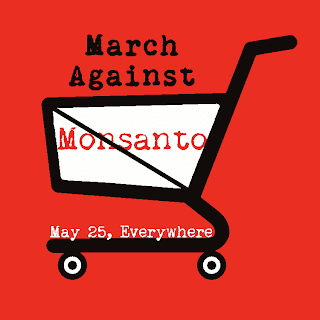The Fight Against Monsanto Continues
On May 13, the U.S. Supreme Court ruled in favor of agro-chemical giant Monsanto and against small farmers on a seed patent case. This is just another example of the attacks faced by small farmers around the world. Our global partners have been fighting against international corporations like Monsanto for years—in Haiti, Mexico, and right here in the United States.
After the 2010 earthquake in Haiti, Monsanto “donated” 475 tons of hybrid corn and vegetable seeds. While the seeds might address a short-term need to plant in the aftermath of the disaster, it would also have renewed dependency on the company’s seeds, which unlike natural, creole seeds, would not reproduce at the end of the season. For that reason, Chavannes Jean-Baptiste of the Peasant Movement of Papaye (MPP), a Grassroots International partner, stated entry of Monsanto’s seed into Haiti was “a very strong attack on small agriculture, on farmers, on biodiversity, on Creole seeds… and on what is left of our environment in Haiti.” In response 10,000 small farmers protested and burned Monsanto’s seeds in Papaye, publically asserting the need to keep the biodiversity of their local seeds and food.
A few months ago, thousands of small farmers from 20 states in Mexico staged a hunger strike and a 5,000-person march in Mexico City to protest the invasion of genetically modified corn. Mexico’s legislature is considering allowing Monsanto, ConAgra and DuPont to plant more than 6 million acres (an area about the size of El Salvador) with GMO corn. Because corn is wind-pollinated, there is no way for farmers to protect traditional varieties from being infected by neighboring GMO crops. This is all the more alarming because Mexico is considered the birthplace of corn and contains a broad biodiversity of corn varieties. Our partners at the National Union of Autonomous Regional Peasant Organizations are continuing to wage legal challenges and organize communities to stop the invasion of GMO seeds.
Opposition against industrial agriculture is also brewing here in the United States. A burgeoning food movement is starting to question where our food comes from, how it is grown, what is does to our environment and what is being sold to consumers. From policy challenges like California’s Proposition 37 requiring mandatory GMO-labeling of food, to the growing numbers of local farmers markets and community supported agriculture shares, to passing local ordinances declaring food sovereignty for their towns and cities, change is afoot.
 A recent online grassroots campaign is harnessing the outrage around the world against GMOs and Monsanto. On May 25 activists in over 30 countries will unite to March Against Monsanto. Josh Castro, organizer of the Quito, Ecuador protest, explains he’s marching because “biotechnology is not the solution to world hunger. Agroecology is.” To learn about events happening in your area, visit the March Against Monsanto events page.
A recent online grassroots campaign is harnessing the outrage around the world against GMOs and Monsanto. On May 25 activists in over 30 countries will unite to March Against Monsanto. Josh Castro, organizer of the Quito, Ecuador protest, explains he’s marching because “biotechnology is not the solution to world hunger. Agroecology is.” To learn about events happening in your area, visit the March Against Monsanto events page.

